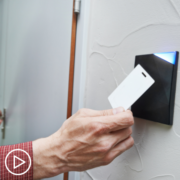MPN Clinical Trial Safety, What Are the Protocols?
MPN Clinical Trial Safety, What Are the Protocols? from Patient Empowerment Network on Vimeo.
Safety is a top concern for many patients considering clinical trial participation. Dr. Ruben Mesa explains the protocols put in place to minimize a patient’s risks.
Dr. Ruben Mesa is an international expert in the research and care of patients with myeloproliferative neoplasms (MPNs). He serves as executive director of UT Health San Antonio MD Anderson Cancer Center in San Antonio, Texas. More about this expert, here.
See More From MPN Clinical Trials 201
Related Programs:

|

|

|
Transcript:
Katherine:
Let’s talk about safety. What are the risks of a clinical trial participation?
Dr. Mesa:
So, clinical trials are structured to try to have the safety be front and center in terms of caring for patients.
So, depending upon the therapy and how much is known about that therapy will dictate the frequency in which the patient is observed. If there’s specific side effects, how are we monitoring for those side effects so that, if they are starting to occur, we can discontinue it, discontinue the drug, lower the dose, etc. So, there are some times we do accept as patients and as physicians some potential new side effects in the hope that a therapy might be more effective against the disease.
So, if it might irritate the eye, do we have eyes exams? If it might cause the heart rhythm to be abnormal in some way, do we monitor electrocardiograms? If it might cause rash, do we have exams at a certain frequency to assess for rash? Is there more blood count tests done to assess for changes in the blood counts, irritation in the liver or kidney?
So, depending upon how the drug might impact someone, it really helps to dictate what monitoring is occurring in the conduct of the study to monitor for side effects.
And then there will always be a very specific plan. Well, if a side effect occurs, what do we do? Is the drug stopped? Is the dose lowered? If it’s stopped, how long do we stop it? – usually until that side effect has recovered. And then, do we restart the drug? And, if so, do we restart it at the same dose or at a dose reduction? So, a clinical trial is guided by something that is called a protocol, which is kind of the long recipe book for exactly how that trial will work and will detail all of these things so that it can be done in a thoughtful way, but also in a consistent way, across institutions.
Katherine:
Mm-hmm. Well, that leads me to the next question. I’m curious to know what protocols are in place to protect patients?
Dr. Mesa:
So, it depends very much by each clinical trial.
There are specific protocols in that any clinical trial that is developed needs to be reviewed and approved at multiple levels through an institutional review board, which is in ethics or specifically focus on clinical trials for an institution or sometimes for a broader group. There are times that there’s additional regulatory oversight from the FDA, from the National Cancer Institute, cooperative groups, and others.
So, there’s really an entire network of things put in place. Mandatory training for physicians, nurses, and staff in terms of good clinical practices in the conduct of the study. There are specific safeguards in terms of the handling of the drugs. The pharmacist, and other safeguards in terms of you receive the drug that you’re intended to receive at the right dose, made in the right way.
Everything is heavily focused in medical practice anyway on patient safety, but you can imagine that in the conduct of a clinical trial that’s taken really to the next level in terms of trying to provide every safeguard for the patient.






